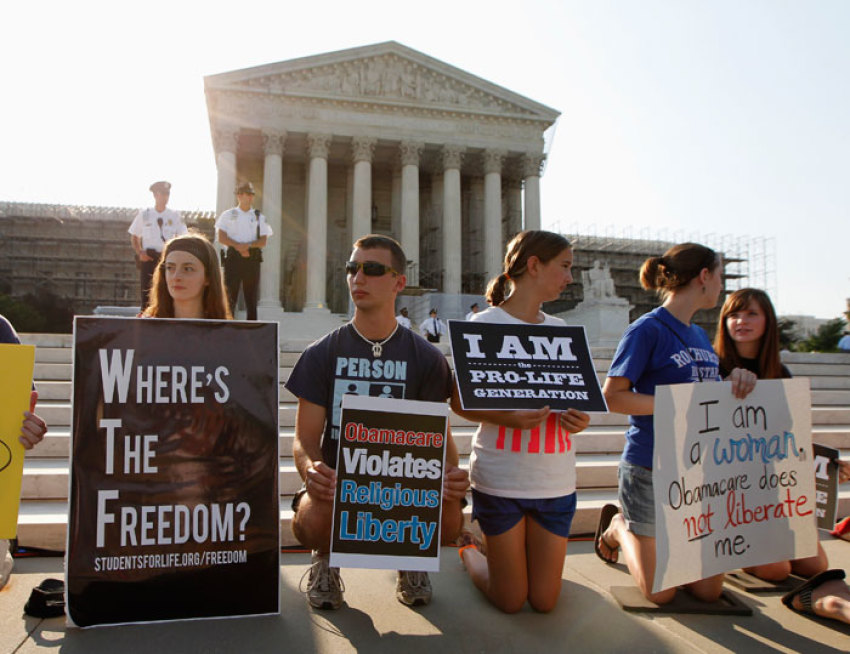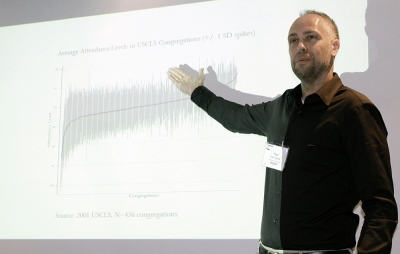Religious Freedom Debates Make Evangelicals More Tolerant, Study Finds

When Evangelicals are exposed to arguments defending their own free speech and religious freedom, they become more accepting of extending similar rights to their political foes, a new study found.
"Rights, Reflection, and Reciprocity: How Rights Talk Affects the Political Process," by political scientists Paul Djupe, Denison University; Andrew Lewis, University of Cincinnati; and Ted Jelen, University of Nevada-Las Vegas, will be presented this month at the Midwest Political Science Association's annual meeting in Chicago.
The researchers sought to understand if the recent culture war battles between sexual freedom and religious freedom (see, for example, here, here and here) would lead to greater or lesser division and intolerance among the combatants. (This paper focuses on the conservative side but they suggest they will also be studying the liberal side.)
In an article for the political science blog The Monkey Cage, the authors explain that their research "has identified a fascinating silver lining [to those culture war battles]. We find that evangelical Christians who are exposed to claims about religious rights actually become more willing to extend First Amendment rights to their ideological opponents. That is, the campaign to reinforce religious liberty might actually increase political tolerance in the long run."

The study used a survey experiment. A sample of 2,141 respondents, including 274 Evangelicals and 1,867 non-Evangelicals, were divided into groups exposed to different messages from hypothetical political candidates and clergy. These messages were about pro-life protestors, the Obama administration's birth control mandate, teaching creationism, and a photographer declining to work at a same-sex wedding. Each group had messages based upon either morality, free speech, religious liberty, and a less specific message that was used as the control group. The study also used a number of control measures that are common in studies of tolerance — education, ideology, political interest, gender, age, and democratic norms.
The respondents were also asked to identify which groups they either "like the least" or "disagree with the most" from among these options: immigrants, Tea Party members, Muslims, homosexuals, Christian fundamentalists, or atheists. For the full sample, the non-Evangelicals chose Christian fundamentalists as their least liked group, followed by the Tea Party. Evangelicals chose atheists as their least liked group, followed by Muslims and the Tea Party.
They found that when the respondents were exposed to the free speech and religious freedom messages from a clergyperson (but not a political candidate), they became more tolerant of their least liked group. The effects were larger among the Evangelicals. And the shift for the religious freedom message was twice as large as the shift for the free speech message.
Importantly, these Evangelicals were not even exposed to messages defending their least liked group. They became more tolerant of others even when exposed to religious freedom and free speech messages in defense of their own positions.
"As we hash over how to balance competing rights during the firestorm over state religious freedom measures, the potential long run positive implications for American democracy have been overlooked," the authors concluded. "The long game is focused not on a particular controversy but on the foundations upon which equal rights for all can be granted and sustained. Though this is just one look, it suggests a long-term dynamic that we could all celebrate."



























